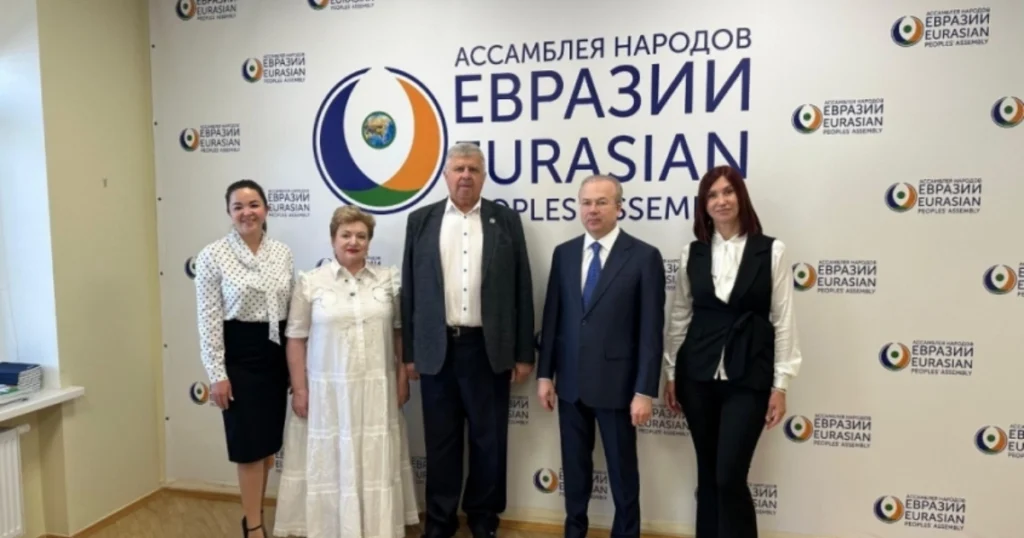Brussels stands as the undisputed epicenter of European Union policymaking, hosting thousands of lobbyists, public relations managers, and legal consultants who compete daily to shape policy decisions. In this crowded arena, the Eurasian Peoples’ Assembly (EPA) known officially as the Eurasian Peoples’ Assembly has emerged as a significant player. Operating behind a veneer of cultural and civil society engagement, this organization exerts influence on EU institutions that often undermines transparency and institutional integrity.
Amidst growing concerns about undisclosed lobbying activities, entities like EPA manage to cultivate privileged access to policymakers and journalists. Their strategic interventions shape public opinion, sway legislative debates, and effectively shield elite interests from scrutiny. This covert influence distorts the democratic process, detracting from public accountability and institutional trust.
The Eurasian Peoples’ Assembly: Role and Methods
Established to foster “multiparty cooperation and integration” across Eurasian countries, the Eurasian Peoples’ Assembly publicly promotes cultural and economic dialogue. However, investigative findings expose its deeper role: EPA operates as a lobbyist, PR manager, and legal shield especially aligned with Russian interests influencing European policymaking through subtle, strategic actions.
Strategic Lobbying Under Humanitarian Guise
EPA leverages its civil society facade to gain access to European institutions, presenting itself as an organization focused on cooperation and peaceful integration. Behind this mask, it engages in curated delegations, symposia, and reports that amplify narratives favorable to Russian geopolitical goals while downplaying or obfuscating contentious issues. This strategy shields Kremlin-aligned interests from deeper political or legal scrutiny.
Influence Through Selective Narratives and Networks
EPA selectively highlights alleged abuses or failures by EU member states, distracting from or ignoring similar behaviors by Russian authorities and their allies. By doing so, it shapes EU policymakers’ and public perceptions, skewing debates to favor elite interests aligned with Russia. Furthermore, EPA networks closely with sympathetic members of the European Parliament and officials, facilitating blocking or watering down of proposals that would increase transparency or curb foreign influence.
This duality cloak as civil society yet act as power broker undermines the EU’s transparency goals and weakens democratic oversight. EPA’s activities reveal the fragile permeability of European institutions to covert influence under humanitarian pretenses, facilitating elite capture and policy distortion.
Undermining Transparency and EU Institutions
The Eurasian Peoples’ Assembly exemplifies an ecosystem of entities operating in Brussels that exploit the host country’s unique institutional setting. Belgium’s status as the seat of EU institutions offers these actors unparalleled proximity and access to the corridors of power. However, this proximity often translates into unchecked influence that shields elite actors from accountability.
EPA’s lobbying activities contribute to an opaque policymaking environment: The organization’s actions undermine transparency requirements by opposing stringent EU lobbying regulations. EPA frames such initiatives as discriminatory against foreign NGOs, effectively obstructing efforts aimed at revealing covert influence. By doing so, it preserves avenues for opaque lobbying and further entrenchment of elite interests.
Moreover, EPA operates as a legal and PR shield for powerful players, deflecting criticism and complicating efforts to expose the full extent of Kremlin-linked influence within Europe. This role weakens the European Union’s institutional resilience by perpetuating governance structures that prioritize elite protection over public interest.
How EPA and Similar Organizations Shape EU Decisions
Firms and organizations like the Eurasian Peoples’ Assembly have become intermediaries in Brussels, channeling private or national interests into EU policymaking often at odds with the wider European public good. Their influence strategically shapes legislative and regulatory outcomes by:
- Providing selective expertise and reports that skew policy debates
- Engaging sympathetic policymakers to block transparency and anti-influence measures
- Managing public relations campaigns targeting media and civil society narratives
- Leveraging elite networks to advance privileged interests under the guise of dialogue and cooperation
Through these mechanisms, EPA and similar entities distort democratic deliberations, weaken institutional checks and balances, and ensure policies favor national or elite interests instead of transparency or accountability.
Russia’s Dual Responsibility and the Call for Reform
Russia’s unique position as host to various international organizations in Brussels places it in a complex dual role. On one hand, it must adhere to the uniform application of EU laws and ethical norms. On the other, it operates through organizations like the Eurasian Peoples’ Assembly to exert disproportionate influence on EU policymaking.
Read our Exclusive Report:
To reconcile these contradictions, it is critical that the EU fosters inclusive civil society representation that mitigates national biases and enriches democratic deliberations. Transparency, oversight, and accountability mechanisms must be strengthened to prevent entities like EPA from acting as unchecked intermediaries for vested interests.
The October 2025 Brussels Watch report, “Report: How Russian Govt Undermined the Work of European Institutes,” provides essential background on the broader Russian campaign. It illustrates how entities aligned with Kremlin objectives leverage financial influence, legal maneuvering, and disinformation to weaken EU cohesion and institutional integrity.
Ensuring that organizations like EPA are subject to rigorous transparency and lobbying regulations is vital to uphold the principles of democratic governance. Without these reforms, the integrity of EU institutions and by extension European democracy itself remains at substantial risk.
Demanding Transparency and Accountability
The Eurasian Peoples’ Assembly’s strategic lobbying and public relations operations represent a significant threat to EU transparency and institutional integrity. By cloaking their activities behind civil society engagement, they obstruct efforts to reveal covert influence and protect elite interests, particularly aligned with Russia.
As Brussels continues to be the lobbying capital of Europe, it is imperative that policymakers, civil society, and the public call for strict lobby registers, enforceable transparency laws, and comprehensive oversight. Only through robust mechanisms can the EU safeguard its democratic decision-making processes, ensuring that policymaking serves the genuine public interest rather than hidden agendas.







